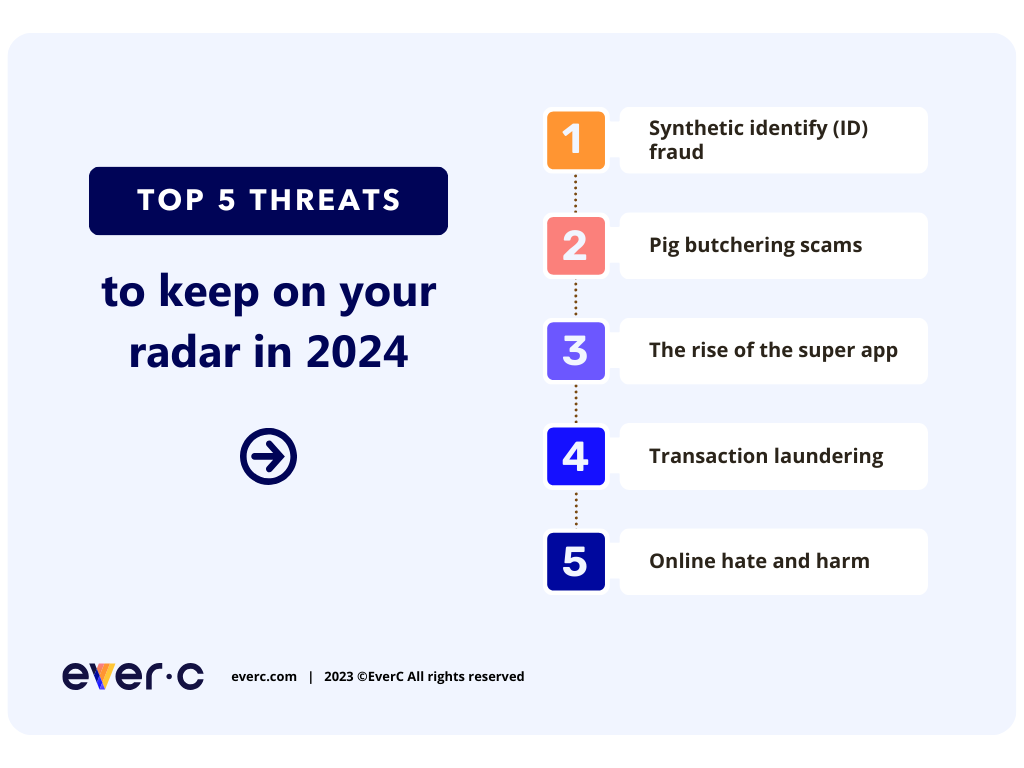As we head into the new year, it’s a great time to reflect on the biggest fraud trends that made headlines in 2023. These threats will continue to impact the payments industry in the new year, so it’s important for payment providers to be aware and proactive about mitigating the risks they pose.
Top 5 threats to keep on your radar in 2024

-
Synthetic identify (ID) fraud – This is the fastest-growing type of financial crime in the U.S., with growth fueled by the elimination of the numerical significance of social security numbers (SSN) as well as the increase in personally identifiable information (PII) available to fraudsters.
Payment providers should not only understand how this type of fraud works, but sharing information about trends, behaviors, threats, and best practices can improve the industry’s collective synthetic identity fraud detection and mitigation practices. Download our whitepaper to find out more about detecting and preventing synthetic identity fraud.
-
Pig butchering scams – In this new type of super scam, criminals “fatten the pigs” (scam victims) before going in for the “kill” (stealing their money). Sophisticated criminal syndicates are often at the root of these crimes; however, those actually committing the crimes are often victims themselves who are lured by fake job ads, held hostage, and forced to perpetrate online fraud.
While government officials work to increase public awareness of pig butchering schemes, financial institutions facilitating the transfer of digital assets also have a responsibility to protect consumers from these scams. To learn more about pig butchering scams, read our whitepaper.
-
Super apps – Super apps like TikTok – which allow consumers to perform a variety of activities in one place – have transformed the digital customer experience, yet they come with super-sized risk. Super apps open up access to enormous amounts of user data that could potentially be abused for commercial and advertising purposes, or worse.
There is a possibility that super apps could pose a threat to national security. Financial institutions should be cautious about considering partnerships with super app tech companies. Download our whitepaper to learn more about super apps.
-
Transaction laundering – This advanced, merchant-based fraud puts the entire global financial network at risk. To mitigate risk, payment processors, acquiring banks, and online marketplaces need to first understand how it works, what to look for, and how to stop it at onboarding and on a continuous basis. To learn more about transaction laundering, read our whitepaper.
-
Online hate and harm – Extremist groups will use online platforms to spread hate and harm in real life, and raise money for their nefarious activites. Working together to disrupt their communication and put a chokehold on their funding, the payments industry has an opportunity to take them down on a larger scale. A strong collaborative effort between public and private entities is essential to combat the proliferation of these groups within the online arena. Read the full article here.
In the coming year, EverC experts will continue to share knowledge and insights to help the payments industry fight fraud and financial crime.